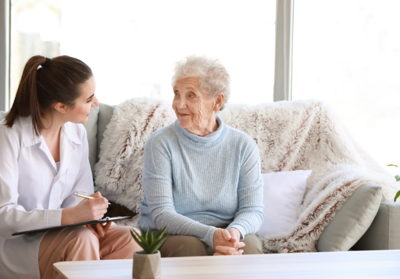
Exercise is good for us all, but recent studies have shown that having a good physical exercise regimen in earlier years can impact on our golden years too – all the more so if you keep exercising into your seventies and eighties, albeit more gently. But often, age brings with it a host of issues that make just getting around a trial, making the mere thought of exercise a painful one. This can result in a loss of physical condition, feelings of depression and low mood. Exercise – regular, gentle activity – can help to boost mental health, as well as offering a host of physical advantages too. Let's have a look at how accessibility can aid good mental health in older people.
Problems with Inaccessible Homes
If getting around your home and keeping yourself clean and comfortable is painful or difficult, it follows that you will do as little as possible. And this often means that the thought of unnecessary movement – such as a walk in the nearby park – is dismissed immediately. It is also harder to do chores and keep the home clean and safe. And struggling to move often means a reduced appetite which follows through into moving even less to preserve dwindling energy. It is easy to see how a lack of accessibility in the home can result in reduced quality of life all round. But it doesn't have to stay this way! Accessibility options, such as stairlifts (check out this stairlift company Houston for details and prices), handrails and even walking sticks or walking frames can take the stress out of necessary movement, making it easier and even desirable to take exercise.
Benefits of Accessible Homes
Having homes that are easy to get around in – a grab bar to help you up the step, a stairlift to easily take you upstairs to the walk-in wet-room, for example, without having to wait for a carer's assistance and so on – leave their occupants confident in their abilities, which can mean that they are more amenable to trying new exercises or returning to old ones, and – counterintuitively! – can also mean that they are more receptive to asking for help should a medical condition present itself.
What Exercise Can Older People Do?
Almost everyone can enjoy a turn around a nearby park or even up a couple of blocks and back. For able-bodied but elderly people, walking is a wonderful exercise: usually free (depending where you are walking!), gentle enough to not cause any stress injuries, and able to be tailored to your specific needs and skill levels. If you can only manage a five minute slow stroll, do that. If you can walk briskly for an hour, well then, do that! Swimming is another good gentle exercise where the water both supports you and offers resistance to build up or maintain muscle tone. Pilates, yoga and bend-and-stretch routines can all be tailored to suit each person, so you feel warm and exercised but not overstretched or sore.
Exercise is a great way of investing in your own future. If you're not already in a good exercise regimen, why not start today with a fifteen minute walk or a quick swim? If you are getting on a bit and beginning to wonder if it's too late for you, good news! You can start taking care of yourself at any age and it will all help in the long run.



(0) comments
We welcome your comments
Log In
Post a comment as Guest
Keep it Clean. Please avoid obscene, vulgar, lewd, racist or sexually-oriented language.
PLEASE TURN OFF YOUR CAPS LOCK.
Don't Threaten. Threats of harming another person will not be tolerated.
Be Truthful. Don't knowingly lie about anyone or anything.
Be Nice. No racism, sexism or any sort of -ism that is degrading to another person.
Be Proactive. Use the 'Report' link on each comment to let us know of abusive posts.
Share with Us. We'd love to hear eyewitness accounts, the history behind an article.